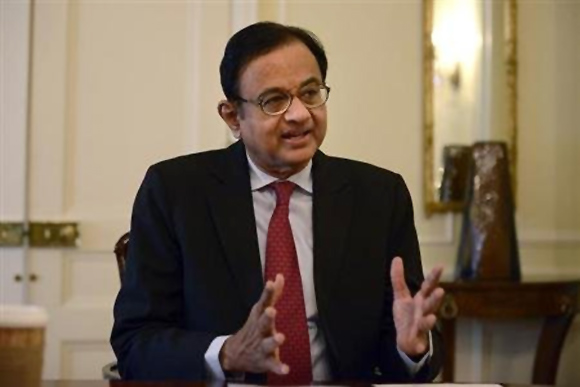
While America Inc, and leading US technology associations rejoiced over Prime Minister Manmohan Singh’s announcement to put a hold on India’s Preferential Market Access Policy, pending further study, industry sources and senior administration officials acknowledged that unrelenting US pressure at the highest levels had led to New Delhi’s capitulation.
These sources and officials told rediff.com that America Inc’s deep concern over the Indian government’s PMA policy with veiled warning that if this policy is implemented it would be a major damper on US foreign direct investment in India had been conveyed to Finance Minister P Chidambaram in the strongest terms during his visit to New York and Washington DC a few months ago, where he doubled up his visit to the World Bank/IMF spring meetings with a road-show seeking US investment, which in turn Chidambaram had relayed dutifully to the Prime Minister.
Despite his tough talk, defending PMA during an interaction at the Peterson Institute for International Economics during that visit, where he dumped on US-India Business Council president Ron Somers, when the latter complained bitterly of New Delhi’s PMA policy, sources said the Finance Minister had been quite taken aback by the vigour with which both business and industry officials involved in doing business in India for decades and senior Obama administration officials had slammed India for this proposed policy and virtually said in so many words that this could be the death-knell of US FDI in India.
...
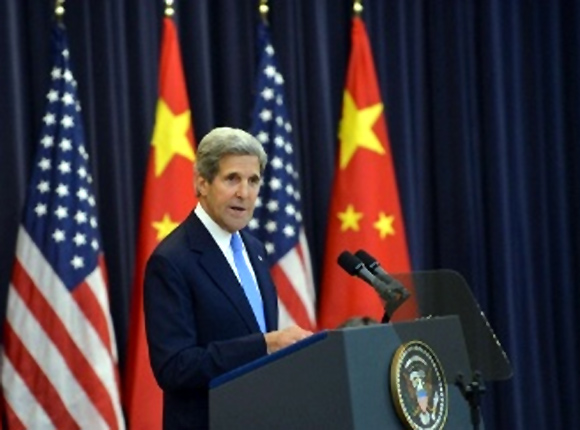
Sources said that Secretary of State John F Kerry had reiterated Washington’s concern during his meetings with senior Indian officials and the Prime Minister himself last month when he co-chaired the US-India Strategic Dialogue in New Delhi and made clear that if this policy was carried out if could have detrimental implications for US FDI in India - vital for that country’s infrastructure needs - and also threaten the burgeoning US-India trade which was in excess of $100 billion last year.
According to these sources and administration officials, it was no coincidence that the Prime Minister’s decision on putting the PMA on hold had been taken on the eve of the USIBC’s 38th Anniversary Leadership Summit on July 11, where Chidambaram was slated to deliver the keynote address and also make a renewed pitch for US investment following apparently a dismal performance less than three months ago when he last visited the US, which would have been equally dismal or even worse and he was assured of an earful from America Inc, if this PMA policy continued to be on the anvil.
Several of these sources were of the consensus that for all his tough talk during his last visit defending PMA, Chidambaram in all of the private discussions had been much more amenable to listen to America Inc’s concerns on this and other issues than his predecessor and now India’s President Pranab Mukherjee, who they said was totally intransigent on these issues, and would in fact “bang his fist on the table” and refuse to compromise on US business and industry concerns.
...
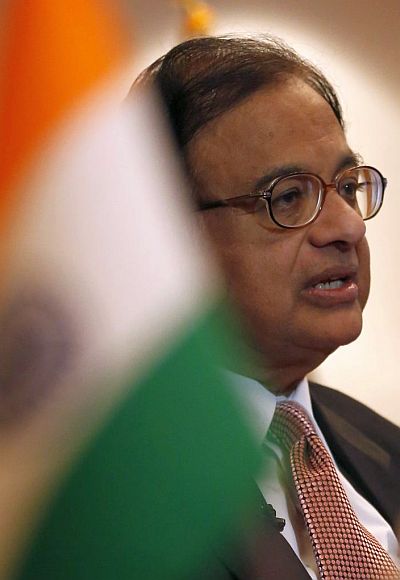
Thus, they acknowledged that it was likely that Chidambaram evidently was catalytic in the Prime Minister’s decision to place the PMA policy on hold and with Kerry reiterating these strong concerns, predicted this policy would be shelved.
Last week, in the press note released by the Prime Minister's Office, it was announced that the entire PMA policy will be reviewed and will not impose domestic manufacturing requirements on the private sector. India is expected to draft a revised policy in the next four weeks.
USIBC, elated over the PMO’s announcement said it has consistently argued for market-based incentives, not mandates, to encourage manufacturing in India and noted that specifically, USIBC supports carving out the private sector from any preferential market access manufacturing policy being considered by the Government of India.
Somers said, “India's rethink of its PMA policy sends a strong and welcome signal that India is listening to investors and that channels of communication through organizations such as the US-India Business Council are working.”
...
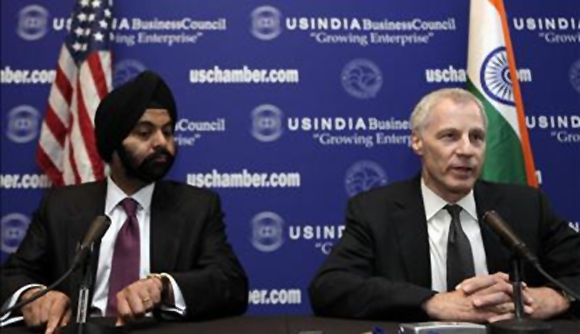
Investors worldwide had requested India to reconsider its policy to mandate manufacturing of electronic goods in India.
The rationale behind India's PMA policy was to force indigenous manufacturing to create jobs in India, and to prevent any security breaches to India's vast telecom and IT sector. American and international firms argued the flawed policy would not help in either case.
Somers argued, “There are many U.S. companies manufacturing in India, and they want to expand. But they want to do so based on market-based principles, including adequate infrastructure, business-friendly policies, and access to a skilled workforce -all elements associated with a free-market economy. A mandated approach will only drive job creators away.”
American firms and USIBC had argued that any reference to private sector mandates should be excised from any policy.
Regarding security, USIBC had suggested that high-level dialogues be convened to share best practices and protocols about how India and the United States can bolster security-a concern facing both countries vis-à-vis cyber-security.
...

Echoing the USIBC’s elation, the Informational Technology Industry Council - the top US IT advocacy organization which counts IT heavyweights like Google, Microsoft, IBM and America Online among its members - also welcomed New Delhi’s decision to revisit and review its PMA policy and expressed optimism that this could be a first step in India adopting global approaches vis-à-vis procurement policies.
John Neuffer, ITIC’s senior vice president for Global Policy said, “There's good news from New Delhi today as the Government of India has opted to take a closer look at its controversial policy designed to compel foreign companies to manufacture electronic products in India if they want to sell there.”
ITIC, like USIBC, has been for the past few months running a sustained campaign against what it has alleged is India’s discriminatory PMA policy and complaining in testimony before US Congressional committee that this would adversely impact on American companies doing business in India.
Echoing Somers’ comments, Nueffer said, “Isolation ignores innovation, freezes opportunity, and drives a stake through the heart of economic growth. That's why we welcome the government of India’s decision to revisit and review the entire policy, including to hold in abeyance the application of its PMA policy to private-sector procurements.”
...
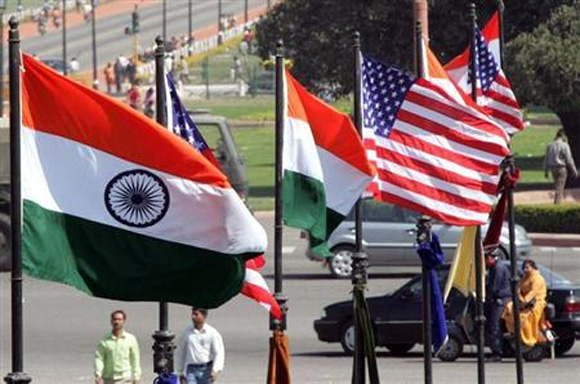
“We believe the kind of market-based incentives that gave rise to India's global leaders in software and services should be the foundation of its effort to build an ICT manufacturing sector. This open approach would help to drive lasting economic strength,” he said.
Neuffer declared, “We stand ready to constructively engage with the US and Indian governments on ways to expand those opportunities. And we are hopeful the four-week review of the PMA will lead the Indian government to adopt global approaches to its procurement policies.”
Last month, on the eve of Kerry’s visit to New Delhi, Ajay Banga, USIBC chairman and president and CEO of MasterCard Worldwide, wrote to President Obama with a copy of his missive to Kerry, urging them - when they meet with Prime Minister Manmohan Singh to prevail on him to address America Inc’s deep and growing concerns vis-à-vis trade and investment in India.
“Your meetings come at a time when US business is facing a series of significant challenges in its ability to enter and compete in Indian markets,” he wrote, and warned, “we will not achieve this promise unless India resumes its growth, restores momentum to its economic reform programs and corrects serious flaws in regulation and policy which damage the prospects of India and foreign corporations alike.”
Thus, Banga urged Obama, that he and his 'representatives lay before our Indian friends an agenda of key changes in Indian policy which, if undertaken, will go a long way towards improving the business climate and restoring confidence in the Indian economy.'
Click NEXT to reads more...

“This agenda should include a hard look at Indian tax policy, aspects of which haunt investors. It should also address intellectual property policy, especially as it affects the pharmaceutical industry. It must treat the serious challenge to American electronics and IT service firms and manufacturers from India’s new preferential market access policy which, bluntly stated, discriminates against foreign competition,” he informed the President.
Banga’s letter to Obama and Kerry followed Chidambaram’s interaction at the Peterson Institute where much to the chagrin of America Inc, he not only strongly defended India’s PMA policy, but also make clear that New Delhi apparently has no intention of compromising on this score.
Chidambaram in lecturing Somers, who had called for squaring the issue on this concern and calling for a dialogue to lay out a market-based incentive approach instead of a mandated policy, asserted, “No country has become a middle-income country or a rich country without a strong manufacturing base.”
“We have a population of over 1.2 billion and we need goods that are manufactured in India,” he said, and asserted, “We have the capacity to build a strong manufacturing base the way China built it, and therefore, I don’t see anything fundamentally wrong in saying that we must have manufacturing in India of these goods that are bought or consumed in India.”
Chidambaram recalled, “When the first automobile makers came to India, I was the Commerce Minister then, and what we now call the Preferential Market Access was called Phased Manufacturing Program, and we insisted that over a period of time they should produce most parts and accessories of that car in India.’
He noted, “I still remember the conversation with the president of Mercedes and he said, how can I make a Mercedes in India - the quality of the Mercedes, the quality of the welding, the quality of the finish, the quality of the paintwork.”
“I said, just try out our workers - he may not be able to weld today as much as you would like him to, but take him to Germany, train him for three to six months and bring him back here.”
Chidambaram said the position today, was that “India makes Mercedes Benz cars, which are exported back to Germany. So what is wrong in a developing country aspiring to acquire a manufacturing base?”